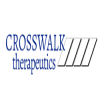Dive Brief:
- Two Democratic congressmen said Thursday they would launch an investigation into the drug pricing practices of multiple sclerosis (MS) medicines, sending letters to seven drugmakers requesting extensive information on profits, expenses and rebates for the pricey treatments.
- Reps. Elijah Cummings, D-MD, and Peter Welch, D-VT — both senior members on the House Committee on Oversight and Government Reform — want the companies to explain why the cost of their medicines has steadily increased, citing data showing the average annual cost of a disease-modifying treatment has increased from roughly $16,000 in 2004 to over $60,000 in 2015.
- Shares in several of the drugmakers, particularly Biogen, Inc. and Teva Pharmaceutical Industries Ltd., fell Thursday on news of the investigation. Lawmaker scrutiny of rising drug prices has increasingly focused on therapeutic classes, such as insulin medicines and now MS treatments.
Dive Insight:
Drugmaker interest in MS has steadily expanded the number of treatment options for the debilitating disease, with six novel medicines approved in the U.S. since 2012.
All that new competition hasn't led to lower list prices, however, a state of affairs that drew the attention of Cummings and Welch. Besides Biogen and Teva, the lawmakers sent letters to Bayer AG, EMD Serono, Novartis AG, Roche Holdings AG and Sanofi SA.
One of the main concerns of the congressmen is the appearance of so-called "shadow-pricing," where competitors set similar prices for their products, matching any increases of rival drugs. Pricing a drug similarly to a competitor is not illegal, however, unless companies deliberately collaborate to raise prices together.
"We believe no American should be forced to struggle to afford lifesaving medical treatments, especially when drug companies increase prices without warning, cause, or justification," Cummings and Welch wrote.
Eleven of the 15 approved drugs for MS highlighted by Cummings and Welch cost more than $80,000 for a year of therapy on a list price basis.

One of the standard defenses for drugmakers under scrutiny for rising list prices has been to point to the rebates and discounts negotiated with payers, which result in a lower net price.
But those discounts are kept secret, making it hard to judge the true cost of many branded drugs across the broader market. Cummings and Welch have specifically requested details on rebates and discounts — including for commercial plans, Medicare Part D and Medicaid — for each drug marketed by each company.
"We are currently analyzing the request in-depth, and plan to respond accordingly and fully cooperate with the Committee to answer their questions," a spokesperson for Teva said in an emailed statement.
A spokesperson for Novartis said the company was reviewing the letter in great detail to determine how to address the government's request.
Prices for older drugs rising, despite new entries
According to the data in the lawmaker's announcement, prices for six of the drugs have more than doubled since their initial approval. All six of those drugs are some of the original disease-modifying treatments (DMTs) approved to treat the disease, including Biogen's Avonex (interferon beta-1a) and Teva's Copaxone (glatiramer acetate).
Most newer drugs have been priced at similarly high levels since launch, resulting in roughly comparable list prices across the board. Those newer drugs, however, have greater efficacy with better safety profiles and give more options to previously underserved patients. Roche's recently approved Ocrevus (ocrelizumab), for example, is the first drug approved for primary progressive form of the disease.
Roche priced Ocrevus at a wholesale acquisition cost of $65,000 per year, which — while still expensive — is notably below that of its competitors.
One factor holding back cheaper treatment options for MS patients is the lack of generic copies. Only one is currently approved: Novartis' Glatopa, a knock-off version of Teva's Copaxone. In order to stave of competition, Teva introduced a new version of Copaxone at a 40 mg dose and successfully switched many Copaxone patients onto that branded treatment, Cummings and Welch note.
Generics to the 40 mg version are inbound, though, which could batter the Israeli drugmaker's bottom line.
Despite the innovation in the space, other groups have found MS drugs to be overpriced. A report from the Institute for Clinical and Economic Review (ICER) found all but one of the DMTs currently on the market for the most common relapsing form of MS are overpriced when compared to a value-based benchmark.
The only one priced under ICER's cost-effectiveness threshold was Sanofi's Lemtrada (alemtuzumab).
Lawmakers have scrutinized drug prices numerous times over the past two years, holding hearings and launching investigations into pricing for various generic medicines and Mylan N.V.'s EpiPen. While that interest spans both Republicans and Democrats, lawmakers have not yet coalesced around a legislative solution at the federal level. States, instead, have been leading the charge, taking up numerous bills to shed light on drug pricing.














